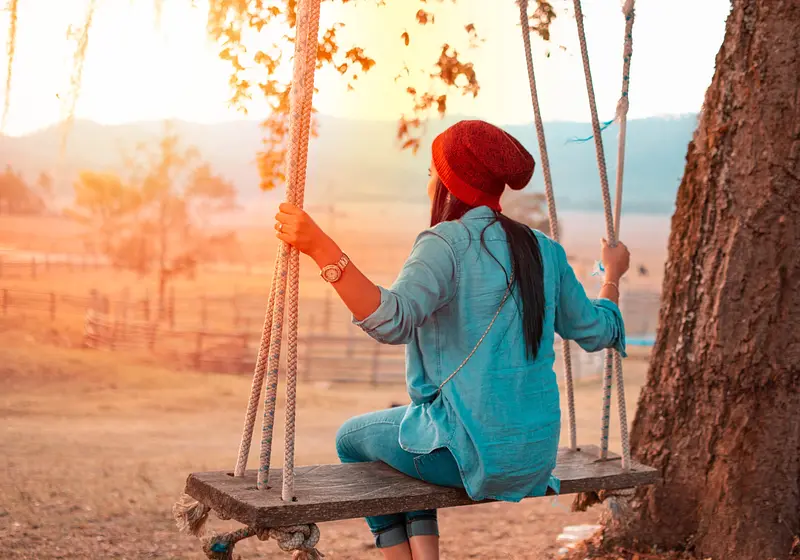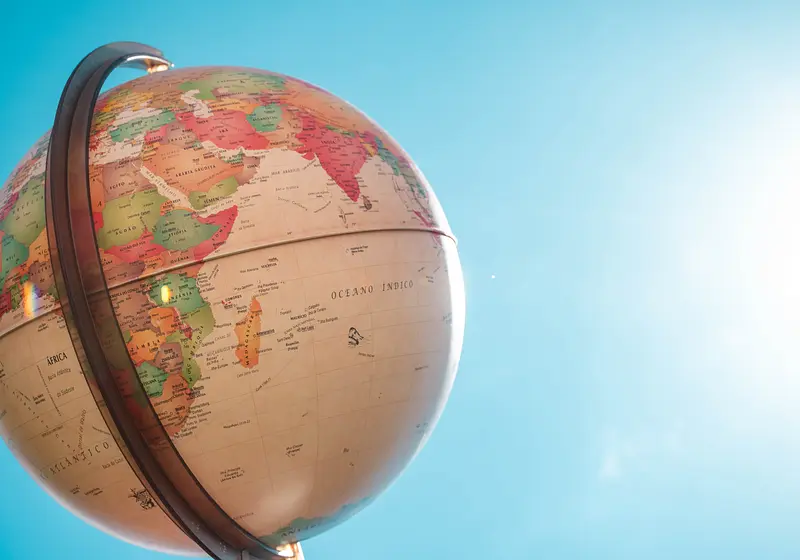What can culture possibly mean to a child? Growing up, no one really sat me down and explained the definition of culture, nor did they explain to me the sheer significance of it in one's life. It was just given.
There. Sitting silently. If someone were to ask me my nationality, I would reply by saying: "I'm a Bangladeshi." However, the conversation would end there because I did not know anything else, but more so what it meant to be a Bangladeshi. Therefore, it became so easy for me to walk away from my heritage, my country, and, of course, my culture.
Let us slide into your dms 🥰
Get notified of top trending articles like this one every week! (we won't spam you)
Take the Quiz: Which Generation Matches Your Personality?
Discover the generation you truly belong to!
The false notion that my culture wasn't good enough
Towards the end of 2011, our house in Bangladesh was littered with boxes and cartons. Each day I would wake up to find less of my belongings in my room and more in those boxes. Prior to this, I was told that we would be moving to the UK; however, I treated it like a story that I would wake up from the next day.
But, when the atmosphere in our household became a little restless and I saw my grandmother crying quietly whilst she was praying, the possibility that our move to the UK began to feel real to me. I was excited! I was going to live in another country! I started helping out my father with the packing, chucking in all of my valuable toys and stuffed animals into the box, and not for a second did the prospect that I would be leaving something behind occur to me.
Now that I look back, there was a considerable change in character that I went through in that short span of time. I became almost hostile towards Bangladesh. I would go up to my grandmother, and instead of addressing her as dadi, I would say "Grandma." I would get irritated by the hot weather and the flies flying around our dinner table, and I would try to converse in English whenever I could.
The change seemed so easy, as if I could become someone else in a matter of a few seconds. I remember a few days before our flight, my aunt had come to say goodbye to us and asked me how I was feeling about leaving Bangladesh. Without thinking much, I replied vehemently, saying that "I couldn't wait to leave" and that "I didn't want to ever come back."
Everything about Bangladesh seemed to aggravate me: the weather, the crowds, the noise and even the food. I hated how everyone seemed to treat everyone like their family. I hated how everyone wore colourful clothes and painted the Royal Bengal Tiger on their faces during the Bangladeshi New Year on April 14th.
I hated how everyone loved each other unconditionally. I was Bangladeshi. There was nothing special about it.
Finally, the day of our departure came around: January 9th, 2012. My father told me to put on a thick jacket since the weather in the UK would be considerably colder. I hugged my grandmother and cried, but only momentarily.
However, everyone else around me was in absolute tears; even my father, who was usually very composed. I was a little surprised. After all, we were going to a better place, right?
Losing my voice
We arrived the next morning, all a little apprehensive, in what seemed like a completely different world. I remember the first thing that really stood out to me were all the different hair colours. In Bangladesh, there was just one: black.
However, here, there were brown, dark brown, red, and a new color that I soon learned: blonde. I was smiling from ear to ear and felt as if I were in a Disney Princess movie. Everything just seemed better.
It wasn't too hot or too noisy, and there was barely any traffic! The first night in our new home, all of us slept in the same room, squished together like sardines in a tin. I would often ask my older sister how she was feeling and she would merely look away and spend her days looking out of the upstairs window.
Maybe she was hoping to discover a familiar face? Or, maybe catch a glimpse of Bangladesh in this new place we were trying to call home?
A week or two had passed and my father had enrolled both of my sisters and I into the local school. My father explained to us how we wouldn't be allowed to speak in Bangla as no one would understand us. I asked him what it meant when he said that "they wouldn't understand us" because all my life, I had grown up with everyone understanding me. He told me that I would soon realize, and I did.
The first day of school was like [censored]! I stood in the middle of the playground like a scarecrow, everyone staring at me because I was apparently different. I tried talking with other children and joining in with their version of catch and chasing games but failed to do so when I realized that they wouldn't understand if I were to introduce a new Bangladeshi rule into the game. Don't get me wrong: all the teachers and children were incredibly kind towards me, but it wasn't what I thought it would be.
It felt strange not to see a few children walking around the playground with samosas in their hands, or a few children bringing in bhatbhaji (Bangladeshi fried rice) for lunch, or even sharing a single lunch box with a group of six or seven. It just wasn't Bangladesh. So, as the days went by, I stopped trying to say anything because I knew that it would be futile. In Bangladesh, if two school children want to be friends, they will touch their thumbs together: a sort of ritual known as bhaab that makes a friendship official.
Here, you had to shake hands, or had to pick up on the social cues that somehow were supposed to convey the message. I would walk around the playground, imagining it to be the playground of my old school in Bangladesh. I would wake up each day, imagining my grandfather would come to drop me off at school.
I would walk around the shops, imagining that the writing on the boards was in Bangla and I would understand everything. I was missing Bangladesh, I suppose. I wanted to go back.
It was suddenly too cold, too quiet and there wasn't enough traffic! It wasn't my Bangladesh.
Re-discovering my culture
It was heartbreaking when I realized that I couldn't just catch a rickshaw and ask to be dropped off at my home in Bangladesh because, firstly, there weren't any rickshaws here, and secondly, even if there were, God knows how long it would take! I wanted to bring a piece of Bangladesh with me wherever I went.
One afternoon, my class teacher announced to the class that we would be doing Show and Tell. I looked around in confusion until my teacher explained to me it was when a few students volunteered to bring in a favorite toy or anything of their choice and stand in front of the class, explaining the story behind it and why it was their favourite. Beautiful concept. So, that day, I went home and pestered my mother to give me something that represented Bangladesh and, in response, she handed me a toy boat carved out of wood.
It was the kind of boat that fishermen in Bangladesh would use to catch fish out in the sea. That night, I couldn't sleep because I was excited about the Show and Tell, but now that I look back at it in retrospect, I think I was more excited at the prospect that now, perhaps, everyone would be able to understand me better.
The teacher called my name and I got up with my toy boat to present it in front of the entire class. I explained how it was carved by hand out of wood and what it was used for, and most importantly, what significance it held to my Bangladeshi culture. True, I could barely communicate the ideas coherently, but it was amazing how I didn't feel nervous; how I didn't feel the need to adjust my tone or accent to emulate...anything. I was talking about my culture, and I felt proud of doing so.
After I had finished my mini-presentation, a lot of the students raised their hands in curiosity to ask questions about my wooden toy boat and to enlighten themselves more about my Bangladeshi culture. They asked all sorts of questions: what kind of clothes did the fishermen wear? What kind of fish did they catch?
What was it like in Bangladesh? I tried my best to answer their questions, but it was certainly a strange feeling to witness the attention being on me and that was because the children wanted to genuinely know more about Bangladesh.
All this time, I had been trying to shield that part of me, thinking that it was not good enough and that I would be ridiculed if I were to expose even a slither of it. However, it turns out I was completely wrong.
It had taken me so long to attach "my" in front of "culture" and proudly say that "Yes, this is my culture." That day after Show and Tell, I understood that a 'different culture' was nothing to frown upon, as in fact every culture is different. Mine is different to yours and yours is to mine. I learned that there is no such thing as a 'better culture'.
I do wish that I hadn't acted the way I did towards Bangladesh; however, I feel as though I needed to have experienced that momentary confusion about my culture to have truly realized what role it played in forming my identity. And it plays an indispensable role. Each day I grow more fond of Bangladesh as I learn never to be ashamed of it, but rather to take pride in it.

















